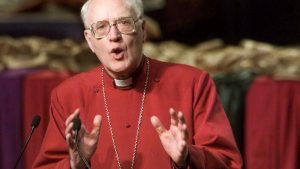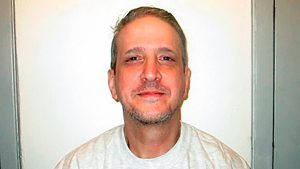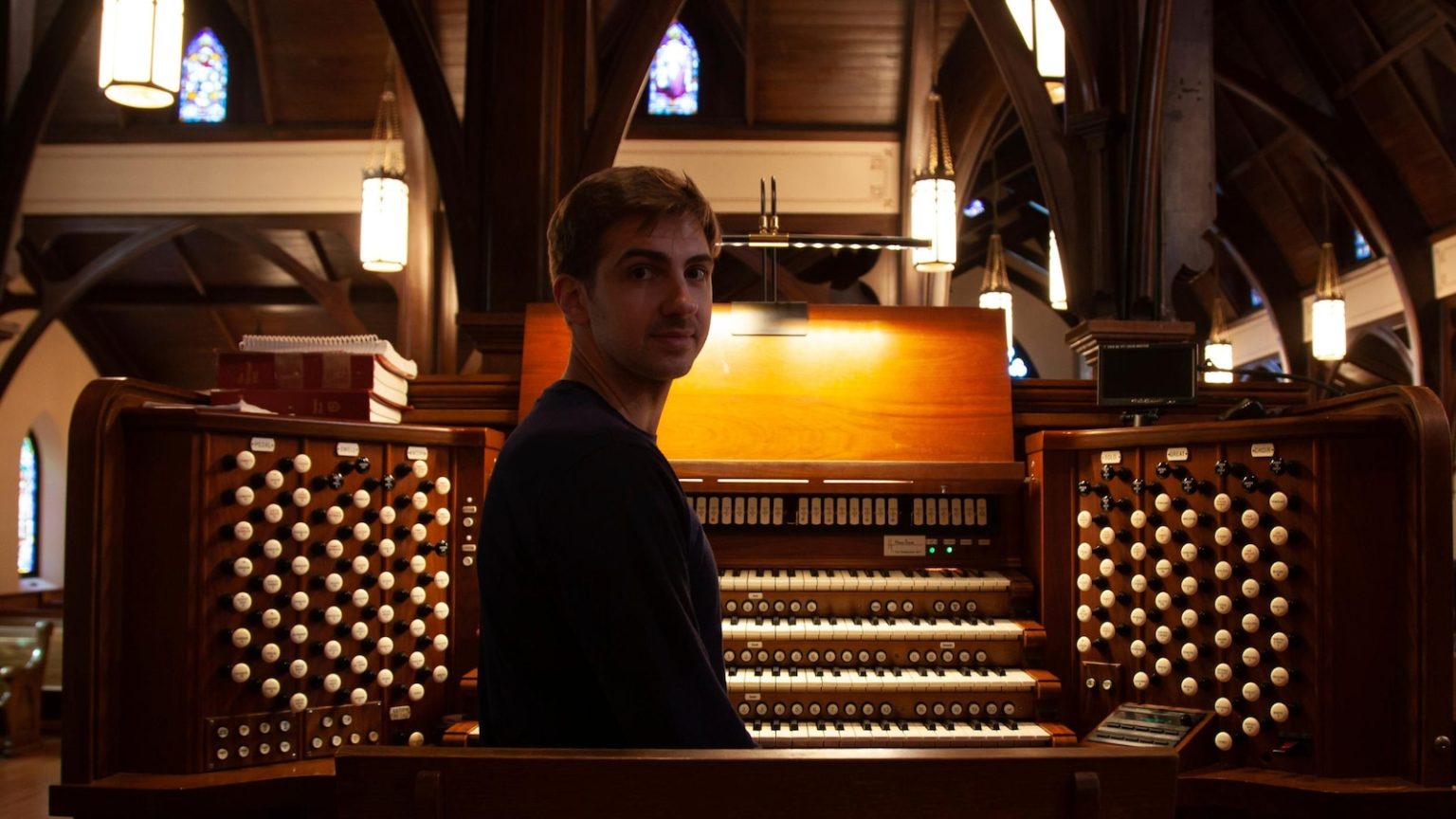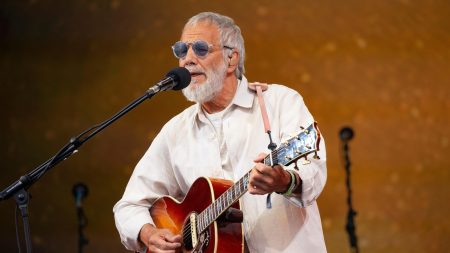A Cathedral Echoing Bach: Colin MacKnight’s Journey Through the Composer’s Legacy
In a quiet corner of Little Rock, Arkansas, the 140-year-old Trinity Episcopal Cathedral has become a hub for classical music enthusiasts and curious onlookers alike. Every Wednesday during lunch breaks, the cathedral’s nave resonates with the rich, complex tones of Johann Sebastian Bach’s organ works, performed by the cathedral’s music director, Colin MacKnight. Over the course of 2025, MacKnight is embarking on an ambitious project: to play all of Bach’s organ works to commemorate the 275th anniversary of the composer’s death. This monumental task, spanning 18 hours of music, is being delivered in half-hour increments, offering both intimacy and accessibility to the audience. For MacKnight, this journey is not just about celebrating Bach’s legacy but also about immersing himself in the brilliance of the composer he has admired since childhood.
The Musician and His Mission
Colin MacKnight, a 31-year-old organist from Bethesda, Maryland, has been Trinity Episcopal Cathedral’s music director for the past three years. His love affair with Bach’s music began at the age of 12, when he first heard the composer’s works at a relative’s funeral. That moment left an indelible mark on him, sparking a lifelong passion for Bach’s compositions. MacKnight began playing the organ at 16, and his dedication to mastering the instrument has led him to this momentous undertaking. The organ, with its intricate console of four keyboards, numerous knobs, and pedalboards, is as intimidating as it is awe-inspiring. For MacKnight, however, it is an extension of his being, a tool through which he channels Bach’s genius.
Bach’s Enduring Legacy and the Challenge of His Works
Johann Sebastian Bach, widely regarded as one of the greatest composers in history, is particularly celebrated for his organ works. These compositions are renowned for their complexity, with intricate pedal techniques and layered harmonies that push the boundaries of the instrument. Performing Bach’s complete organ works is a rare achievement, even among professional organists, due to the sheer volume and difficulty of the music. MacKnight’s project is part of a global celebration of Bach’s legacy, with events taking place around the world to honor the anniversary of his death. Among the select group of organists who have tackled Bach’s complete works is Grammy-winning organist Paul Jacobs, who was MacKnight’s teacher at the Juilliard School. Jacobs famously performed an 18-hour nonstop marathon of Bach’s organ works in 2000 to mark the 250th anniversary of the composer’s death.
Concerts as Community and Education
MacKnight’s concerts are more than just performances; they are gatherings that foster community and provide a space for learning. The free, public events have attracted a diverse audience, including church members, classical music aficionados, and newcomers seeking a peaceful respite from the chaos of daily life. Each concert is accompanied by a program that includes a glossary of musical terms, such as “fugue” and “conerto,” to help attendees better understand the complexity of Bach’s works. MacKnight also takes the time to provide context and insights about the pieces he performs, sharing stories about Bach’s life and the historical significance of the music. These mini-lessons create a deeper connection between the audience and the art, making the experience both enriching and accessible.
The Audience’s Response: Finding Solace and Inspiration
For many in the audience, MacKnight’s concerts have become a cherished ritual. Barry Coplin, a church member who has attended two of the performances, expressed his admiration for the complexity of Bach’s music and the emotional stirrings it evokes. “I like the complexity of the music and the power of the organ, which stirs me internally,” he said. Ben Wiley, a classical music enthusiasts who travels 30 minutes to attend the concerts, appreciates the structured format of the performances. “It’s a good way to be able to get it done in short bursts, to be able to absorb it better and come back for the next batch,” he remarked. The concerts have also attracted newcomers who are drawn to the tranquility of the setting and the opportunity to experience live classical music in an intimate environment.
A Celebration of Bach and Community
The concerts are not just a celebration of Bach’s music but also a testament to the power of art to bring people together. Rev. Thomas Alexander, a priest at Trinity Episcopal Cathedral, compared listening to Bach’s complete works to reading an author’s entire collection of novels. “You get to really get to know someone in a comprehensive way,” he said. “But it also builds a sense of community.” MacKnight’s performances have created a shared experience that transcends generations and musical backgrounds, offering a space for reflection, learning, and connection. As the year progresses, MacKnight’s journey through Bach’s organ works will continue to inspire and uplift all who are fortunate enough to experience it. His dedication to this project is a reminder of the enduring legacy of Johann Sebastian Bach and the transformative power of music. On July 28, the day of Bach’s death in 1750, MacKnight will perform one of the composer’s most extensive works, Clavier-Ubung III, also known as the German Organ Mass, in a 100-minute concert that promises to be a fitting tribute to Bach’s genius and a culmination of MacKnight’s year-long odyssey.















